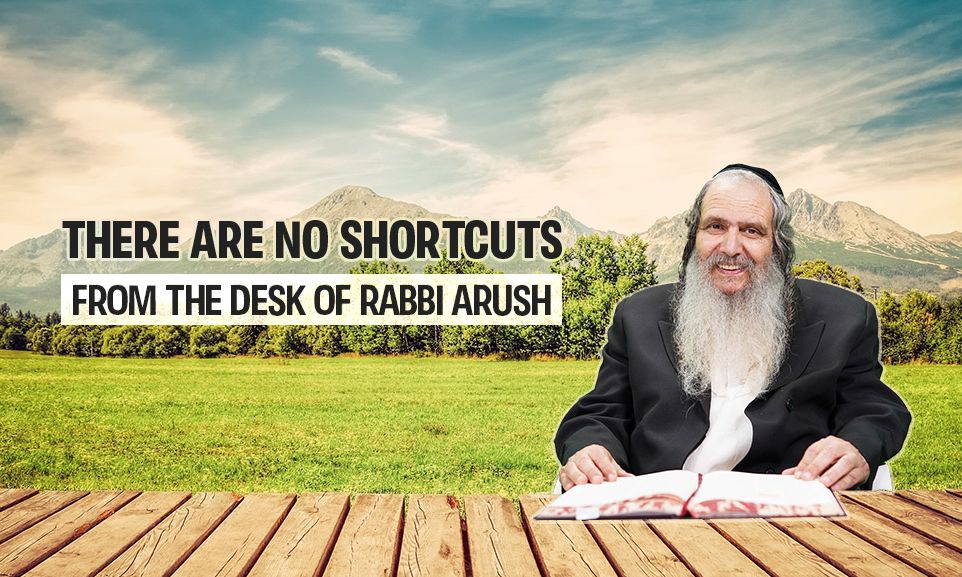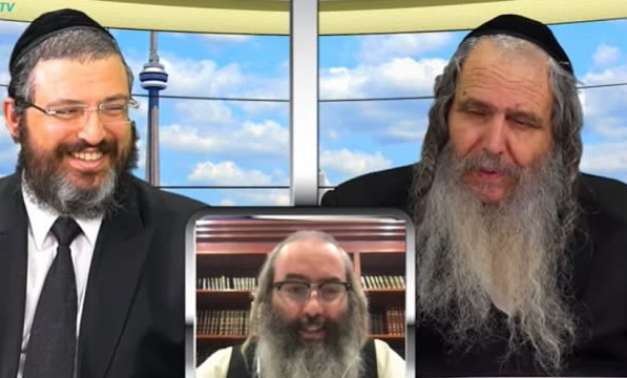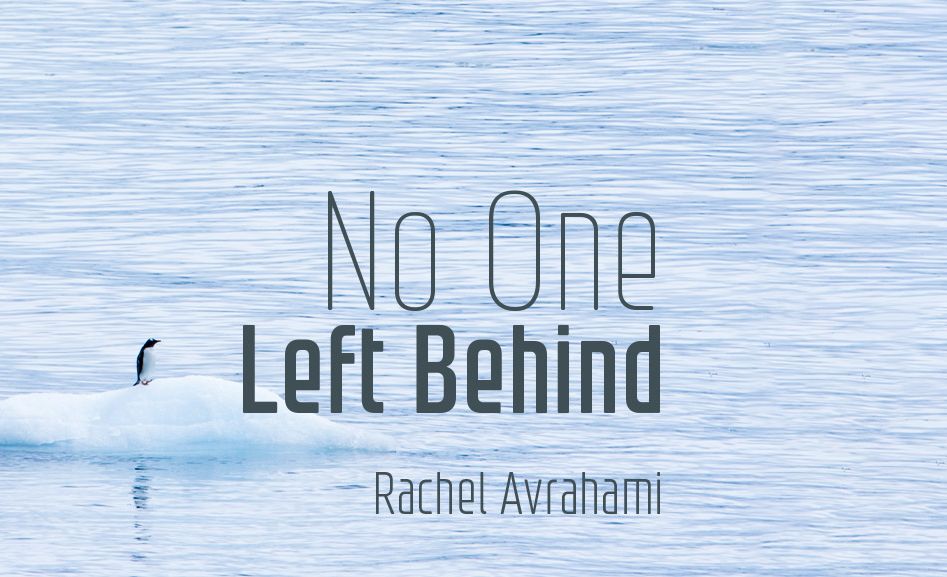
There Are No Shortcuts
Thinking of making aliyah to Eretz Yisrael? A Jew’s entire kedusha depends on Eretz Yisrael. Aliyah is not trivial - one needs much preparation and longing. It’s a life-long journey with no shortcuts.

Money Isn’t Everything in Life
Two of the greatest tzaddikim of Rabbi Nachman of Breslev’s generation had married off their children to Rabbeinu Hakadosh’s descendants: The Rav from Waltshisk and the Rav of Chmelnik.
The Rav of Chmelnik was once told that the Rav of Waltshisk had been longing for forty years already to make aliyah to Eretz Yisrael. So, the Rav of Chmelnik replied: “What’s all the fuss about? Why long for something for forty years? One can simply take some money and go.” Rabbeinu heard this and said: “The Waltshisker Rav, who has been longing to go to Eretz Yisrael for so many years, will merit living in Eretz Yisrael in the end; but the Chmelniker Rav, who said “Take some money and go” – he certainly won’t get there.” And that was indeed what happened.
And so, Rabbi Nachman of Breslev teaches us that traveling to Eretz Yisrael is not something trivial. It is not a matter of “calling the travel agent and ordering a ticket.” It is far beyond it. Eretz Yisrael is a place of supreme holiness; a Jew’s entire kedusha depends upon it. Emuna (faith) and tefilla (prayer) and all mitzvah observance achieve completeness only in Eretz Yisrael. Eretz Yisrael is Geula! So, to get to Eretz Yisrael one needs much preparation and longing and sometimes also a long wait. It’s a life journey.
Let’s Go for A Ride
Eretz Yisrael borders on Egypt. If one travels from Egypt directly north, one reaches Eretz Yisrael within a short time. But the Torah tells us that after the Exodus from Egypt, the Holy One, Blessed Be He didn’t take the Jewish People by the shortest and simplest route, but rather took them on a circuitous way: “So He led them on a roundabout course, by way of the wilderness, to the Sea of Reeds.” This route added a great many adventures to the trip, such as the Splitting of the Sea and the war with Amalek, and then they were stuck in the wilderness for forty years, wandered great distances, went around three countries, conquered two more countries until they finally reached Eretz Yisrael from the exact opposite direction – from the Jordan River.
Rabbi Natan explains that all the wanderings and tribulations a person needs to go through until he reaches Eretz Yisrael are for the purpose of supreme tikkunim (rectifications). For there are holy sparks scattered throughout the world, and the complete Geula can come only when all these sparks are gathered back into Eretz Yisrael. And that is why Jewish souls have been exiled to every distant corner of the earth – to pick up those scattered sparks.
And then Rabbi Natan says something amazing: that every Jew, as he is, even if he is very far from being a tzaddik, by the very fact that he is Jewish, and even if he performs just one small good deed – that is already enough to pick out those sparks from the depths of the klippot (evil influences).
Heavenly “Brakes”
All these years I have been calling diaspora Jews to immigrate to Eretz Yisrael, and now I’m calling them even more to do so, and they themselves feel the critical need to come on aliyah. The reality today proves that Judaism cannot survive long-term outside of Eretz Yisrael. And therefore, anyone who cares for his children and wishes to see them continue in the ways of the Jewish People must make aliyah, the sooner the better.
With all that, I receive many missives from Jews who have many, many inhibiting factors when it comes to aliyah – all kinds of reasons and considerations that prevent them from coming. It could be money issues, or disagreements between the two spouses; it could be close family members who will be remaining there, and it could be their being influential where they are, etc. etc.
Some tell me, “If the rabbi tells me to come on aliyah, I will come no matter what, in spite of all the good reasons I have to stay there.” But in some of the cases, the considerations are legitimate, and according to Hashem’s will, they must remain there. It is not the time for them to immigrate. And here we must use Rabbeinu’s words, who warned against forcing it, in other words, doing it prematurely, under pressure. It’s great that you have a strong desire to make aliyah; it’s really a wonderful thing, but if, in the meantime, you are being delayed by Heaven, due to some reason or another, you must submit to Hashem’s will.
To Want and To Strengthen Yourself
But this doesn’t mean, chas vechalila, that you must give up your desire. Rather, just in the meantime, as long as you are there, you have two very important tasks:
The first task is to continue to want, full force; to continue to pray, to yearn. Not to give up and not to relent. Also, to do whatever you can practically, as possible. My recommendation is to buy an apartment in Eretz Yisrael, if possible, and visit frequently on holidays and at every opportunity, and slowly, slowly you will begin to connect to the land and love it.
The second task is to strengthen yourself where you are, to believe and know that if you’re still there, you are surely there on some mission. It could be a mission that you’re able to understand and feel yourself, and it could be a hidden mission of tikkunim and picking the sparks out of the depths of exile, things that you cannot grasp and have no understanding in.
Ten Degrees of Holiness
And what is true with the matter of coming on aliyah, is true for the Jews in Eretz Yisrael who have had the merit to awaken and do teshuva, and they want to move to a place of Torah, and they have great difficulties. They must know that the aspiration to live in a place of Torah is certainly a good aspiration, as Rabbi Yossi ben Kisma said to the person who suggested that he come live in his city: “Even if you give me thousands upon thousands of golden dinars and pearls, I will live only in a place of Torah.” But here, too, one shouldn’t force matters, and one must make sure that the move meets the needs of the wife, the husband, the children, making a living, and do things only with waiting and prayers.
Although aliyah and moving to a place of Torah are an extremely important part of a person’s rectification, still, one shouldn’t be forcing it. He who comes to be purified is told: Wait. There is no reason to do hasty things that you will pay dearly for.
So, what should be done? Continue to want. Continue to yearn. Be strong in your opinion and your desire. Do not give up on your desire under any circumstances. Do not stop praying to Hashem under any circumstances. Always say to Hashem: “Whenever You want, only when You want. Only You know which time is the right time and most suitable for me.”
In the meantime, even if you are truly suffering where you are, whether outside of Eretz Yisrael, or lehavdil, in Eretz Yisrael but in an environment that makes it very difficult for you to grow spiritually, always remember Rabbi Natan’s words:
Know that you are correcting. Know that you are picking out sparks; remember that the wanderings that you are going through wherever you are, are an inseparable part of the process of Geula!
I Shall Bring Back from the Depths of the Sea
This is true not only regarding a physical place, but also for a spiritual place. Even if you have fallen, do not give up, and always strive to rise and to renew yourself. But also remember all the time that in your failures as well, if you hold onto any small point of Judaism that you can, you are thereby rectifying greatly, even though you have fallen from your previous status.
We will conclude with Rabbi Natan’s sweet words:
“When a person falls due to his sins to a place far from holiness, Hashem, yitbarach, arranges for him to receive hints there, relevant to that place, and arranges some merit for him that he can acquire particularly in that faraway place.
And that is his nisayon (trial) and choice. If he remembers Hashem, yitbarach, there and does what he can, what Hashem hinted to him in any place he is in – he will be able to return easily to Hashem, yitbarach, because it is at that place that he will be able to perform a small task to please Hashem and bring Him pleasure… what he wouldn’t have been able to do in a holier place; because Hashem, yitbarach, feels a great pleasure… when some task from the lowest and furthest away place comes up to Him…”
Dear Jews, whoever wants true oneg Shabbat with an abundance of spiritual force, I recommend that he learn these empowering words at length in the holy book of Likutei Halachot, part II, 4:45 – the halachot of blessings over smelling – and he will enjoy it.












Tell us what you think!
Thank you for your comment!
It will be published after approval by the Editor.